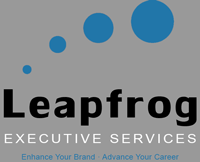Leadership, Loyalty, and a Leader’s Brand
Category : 2017
Does one question really tell it all? If it tells the story for a company, can a similar question tell the story for a company’s leaders?
In 2003, Bain consultant Fred Reicheld reported the singular factor most indicative of customer behavior was loyalty, measured by simply asking, “What is the likelihood that you would recommend Company X to a friend or colleague?”
While the now, well-known Net Promoter Score has its critics, from Google to Apple to Facebook to Walmart, the list of companies using this process is both impressive and extensive: http://www.netpromotersystem.com/about/companies-using-nps.aspx. Why? Bain discovered companies achieving long-term profitable growth had NPS scores two times higher than the average company.
Take NPS to a personal level. How much should an executive care about loyalty to the brand associated with his or her name? If customer loyalty drives strategic growth for a company, how much does loyalty to a leader impact growth at a tactical level?
Over a decade ago, Gallup’s research confirmed people do not leave companies as much as they leave managers. If a leader wants to engage and retain his or her top talent—the people most directly responsible for results, investing time in building associate loyalty is a prudent endeavor.
For an executive trying to create differentiation in a competitive space, the leader will find value in frequently and honestly answering one question. “How much do people like working for you?” Loyalty (and engagement) aren’t about a willingness to work for a leader, loyalty is defined by wanting to work for a leader.
That kind of loyalty only grows in the fertile ground of trust. People work with someone they respect, they follow someone they trust. That means while a leader ascends the career ladder, authentic engagement, transparent communication, and personal involvement with the team remain priorities.
This journey isn’t about gaining popularity. Loyalty isn’t the result of giving people everything they want. Loyalty grows from giving people what they need. A leader’s associate satisfaction score grows when a leader stays engaged, speaks the truth, promotes autonomy, accepts responsibility, and practices accountability.1
Asking, listening, and acting are a sure path to creating loyalty—with a customer and with a team.
1 Harvard Business Review, Proven Ways to Earn Your Employee’s Trust, by Carolyn O’Hara, June 27, 2014.
